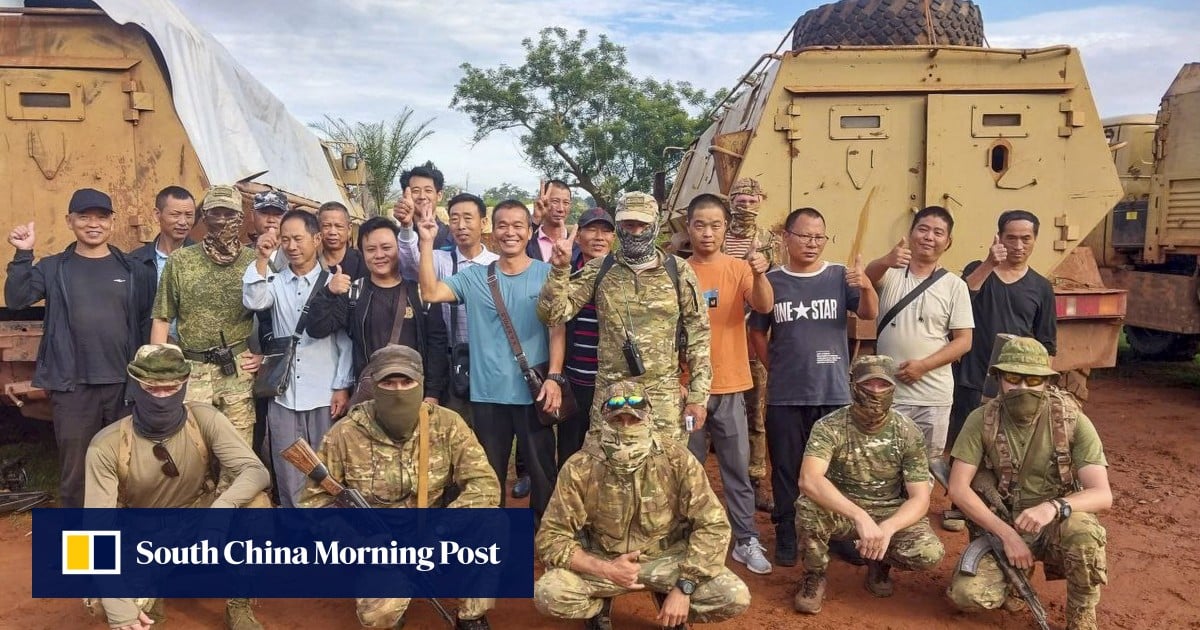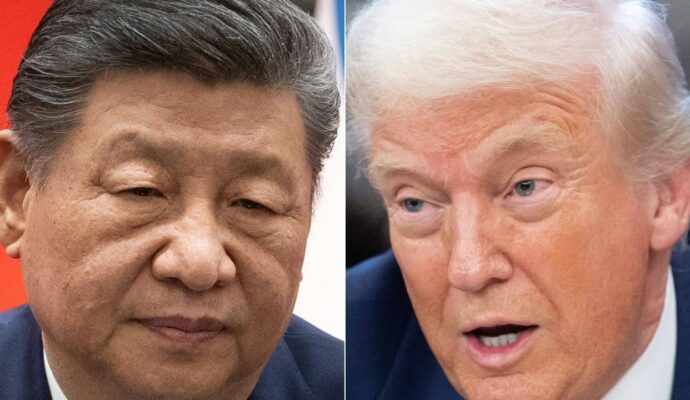
The photos posted on Telegram, apparently taken after the rescue, showed about a dozen Chinese workers standing next to several masked Wagner fighters.
It is not clear if the Kremlin meeting discussed the Wagner Group’s operations in Africa. A Kremlin spokesperson said earlier that the meeting was held to discuss the group’s future.
The South China Morning Post tried to confirm the evacuation operation with the Chinese embassy in Bangui, but received no response as of Wednesday night.
Three Chinese military sources told the Post that it was “very common for Chinese government and state-owned enterprises to seek help from local private security forces to protect Chinese nationals and overseas assets”.
“For China, this is just an occasional case. The Wagner Group is not its only choice [for security help] in central Africa,” said Tian Buchou, a veteran of China’s special forces who has spent nearly two decades managing security for Chinese companies in the Middle East and Africa.
“But this evacuation operation could be very important to the Wagner Group, which has been struggling to expand its business in resource-rich Africa” where France, the Netherlands, Spain and India also have mercenaries, Tian added.
[embedded content]
Another Chinese military veteran, who spoke on condition of anonymity, believed the group had chosen to disclose the operation to appease Putin by showing it was eager to help Russia bolster its relations with China.
“Only Chinese state-owned enterprises are allowed to operate mines in Africa, and these operations are backed by the Chinese government,” the veteran said. “Chinese companies are major potential clients [for Wagner].”
Zhou Chenming, a researcher with the Beijing-based Yuan Wang military science and technology think tank, suggested the disclosure might be an intentional message from the Wagner Group that it was refocusing on its African business.
“The Wagner Group needs to tell the world that it is taking up its old trade,” he said.
“For China, both the gold mining and hiring of security forces to protect the workers are just normal commercial operations, and Beijing is only interested in business and not local politics,” Zhou said.
“So it is happy to contract out security matters like the protection of Chinese nationals and assets to private military groups.”
Soon after the attack in Bambari in March, a militant rebel group called the Coalition of Patriots for Change denied it was behind the violence.
However, without providing evidence, it accused the Wagner Group and the Central African Republic’s livestock minister of planning the attack.
A Chinese military source, who also requested anonymity, dismissed that accusation, saying such a scenario would go against the Russian outfit’s own interests.
“It’s an open secret that the Wagner Group has helped the Central African government train its army, so it does not make sense for Wagner to attack Chinese nationals,” the source said.
“However, the Chinese government would not want to make a big deal because it doesn’t want to get involved in local politics, especially when Wagner mercenaries were alleged to have committed systemic and grave human rights atrocities on the battlefield of the Ukraine war,” he added.
Zhou said the Wagner Group was not Beijing’s sole working security partner in African countries and that competitors from countries like France, Spain and the Netherlands were also active.
These developments have transpired despite a United Nations convention prohibiting the recruitment, training, use and financing of mercenaries. The treaty entered into force in 2001 and has been ratified by 46 countries among the UN’s 193 member states.


